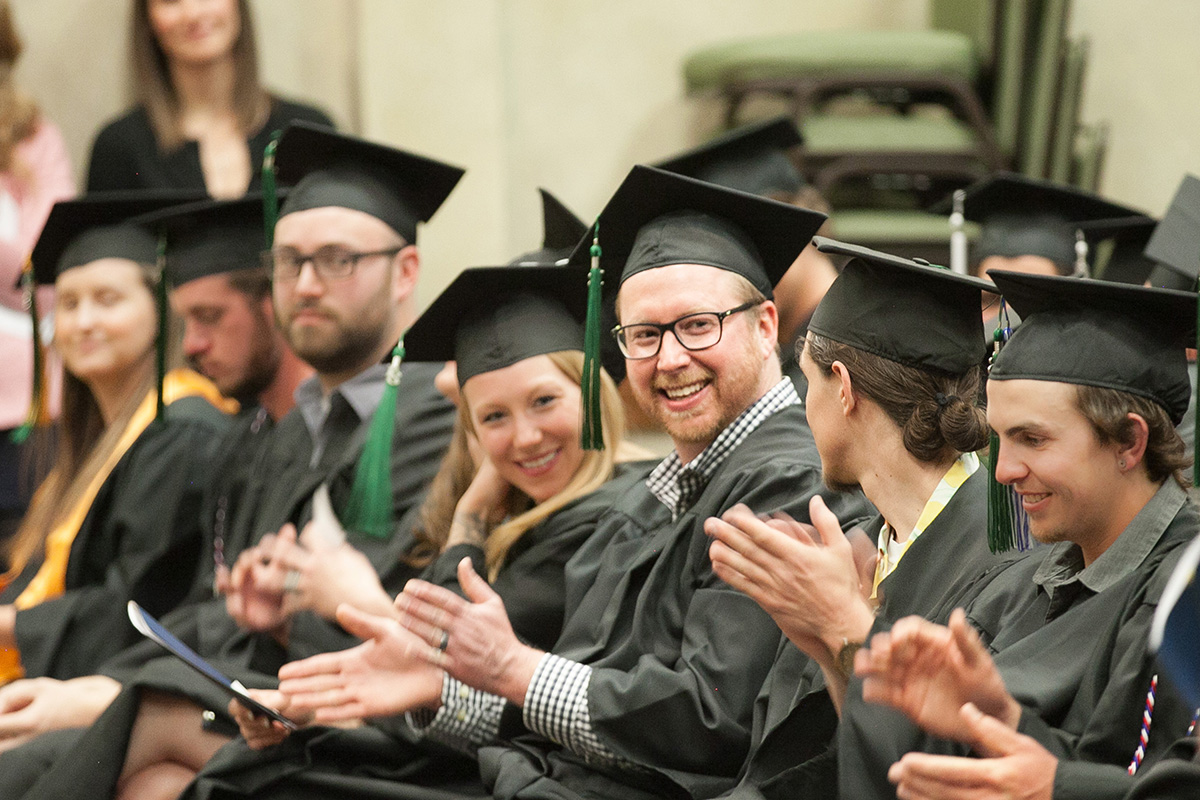By Carrie Click
BRECKENRIDGE – People sometimes ask John Mein, who graduated from Colorado Mountain College Breckenridge and Dillon May 5, why he went to the trouble of making the Frisco house he was renting more energy efficient. Why did he do all that work for someone else’s house?
“We were cold,” Mein said matter-of-factly. “We were super cold.”
Mein was renting a small cabin in Frisco’s Bill’s Ranch neighborhood while earning his bachelor’s degree in sustainability studies at Colorado Mountain College. He loved the older house, but being attuned to environmental conservation – and being a warm-blooded mammal – he noticed how much heat the house was losing with its outdated and sometimes nonexistent insulation. The cabin had leaky sealants throughout its nooks and crannies, wasteful faucets and showerheads, and more.

They CARE
Through friends at High Country Conservation, Mein discovered a solution through Colorado’s Affordable Residential Energy program. At no cost to participants, CARE assesses properties for ways to significantly decrease energy inefficiencies. The organization coordinates with local CARE agencies, such as High Country Conservation and Deeper Green Consulting in Summit County, to install the most cost-effective, energy-saving products into the house.
Each county has an income cap for those living in the residence to participate in CARE’s program. Summit County’s cap is $50,800 for a household of one, and $72,480 for a household of four, for example. Improvements may include air sealing, attic insulation, high-efficiency furnace installation, LEDs, storm windows and more. CARE determines the grant amount based on the building’s needs.
“The program issued a grant up to $3,000 to help facilitate the improvements for this project,” Mein said.
An ideal capstone project
Each CMC student earning a Bachelor of Arts in sustainability studies must complete a capstone project, an upper-level, semester-long course that is typically taken during the senior year. Each capstone represents the culmination of the student’s academic, intellectual and social experiences learned during the course of earning their degree.
Before he began the work on the little rental cabin, Mein knew that his energy-efficiency upgrade would be the ideal focus for a sustainability studies capstone. He decided the best way to illustrate the work was through a short film – a demonstration to show how the process works and to help others make their homes more energy efficient, too.
The result is “Cold to Comfort – Improving Building Performance: 0042 Lookout Lane,” a 20-minute short that details the steps involved in weatherizing and making a home as efficient as possible.
Besides cutting down on energy bills and substantially warming up the cabin, there’s another benefit to tackling this type of work. According to the U.S. Department of Energy’s 2016 Renewable Energy Data Book, Mein said in the U.S., buildings consume close to 40 percent of the energy in the country. “That’s more than transportation and industry,” he said, which account for nearly 29 percent and nearly 32 percent, respectively.
Now with his new film and his bachelor’s degree in sustainability studies from Colorado Mountain College behind him, Mein is off on his next sustainable project. He has work lined up in Paonia at the end of June at Solar Energy International.
